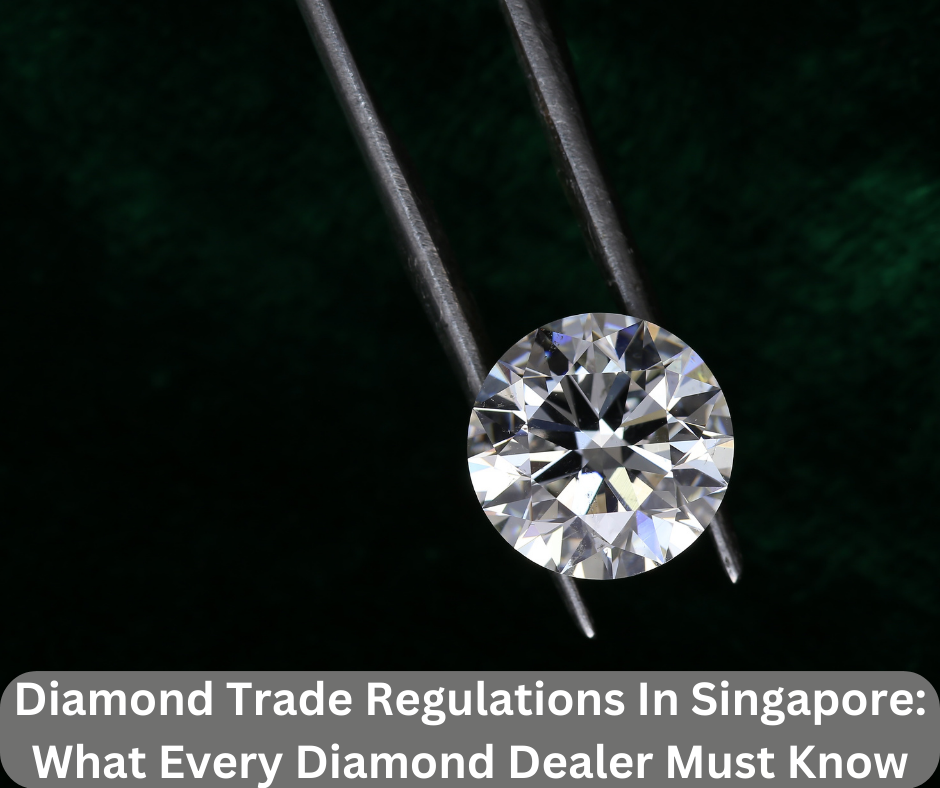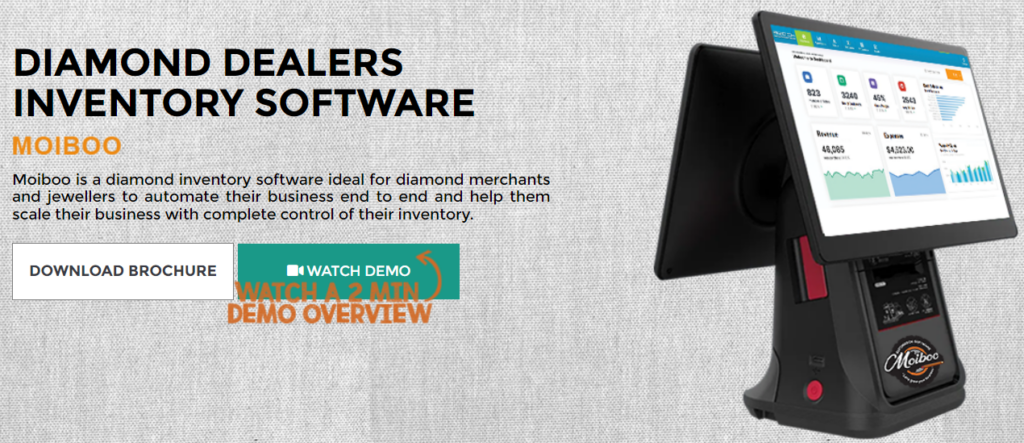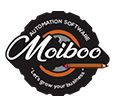Introduction
The diamond trade is a captivating industry that sparkles with beauty and elegance. In Singapore, a prominent global financial and trading hub, the diamond trade plays a significant role in the economy and culture. However, along with its allure, the diamond industry is subject to stringent regulations to ensure ethical practices, transparency, and fair trade.
In this blog, we will delve into the essential diamond trade regulations that every dealer must be well-versed in to operate within the boundaries of the law and maintain the industry’s integrity.

The Singapore Diamond Trade Industry: An Overview
Singapore, known for its dynamic business landscape and strategic location, has established itself as a prominent player in the diamond trade. As a member of the Kimberley Process Certification Scheme (KPCS) since 2003, Singapore remains committed to preventing the trade of conflict diamonds, also known as “blood diamonds.”
The KPCS aims to eliminate the sale of diamonds that fund armed conflicts and human rights abuses, providing a responsible framework for the diamond trade.
Kimberley Process Certification Scheme: A Pillar of Responsible Trade
The Kimberley Process Certification Scheme is a joint effort between governments, industry stakeholders, and civil society to ensure that rough diamonds are mined, transported, and traded responsibly.
Every diamond exported or imported in Singapore must be accompanied by a Kimberley Process certificate, which guarantees that the diamond is conflict-free. This certification process strengthens consumer confidence and fosters a sustainable diamond industry.
Diamond Grading and Certification: The GIA Standard
The Gemological Institute of America (GIA) holds the top position as the global authority in diamond grading and certification. Its meticulous and unbiased grading system assesses diamonds based on the 4Cs: Cut, Color, Clarity, and Carat weight. In Singapore, dealers and consumers rely on GIA certificates to gain accurate insights into a diamond’s quality and authenticity.
The aim of Countering the Financing of Terrorism (CFT) and Anti-Money Laundering (AML)
Singapore maintains a robust anti-money laundering and counter-terrorism financing framework to combat illicit financial activities within the diamond trade. Diamond dealers are subject to strict reporting requirements, customer due diligence procedures, and record-keeping obligations. Compliance with these regulations is essential to prevent criminal elements from exploiting the diamond industry for illicit purposes.
The “Prevention of Money Laundering and Terrorism Financing Act” governs the trade of precious stones and metals.
In Singapore, the Precious Stones and Precious Metals (Prevention of Money Laundering and Terrorism Financing) Act (PSPM Act) regulates precious stones and metals dealers, including those involved in the diamond trade.
This Act outlines the obligations of dealers to register with the relevant authorities, conduct risk assessments, and implement robust internal controls to prevent money laundering and terrorism financing activities.
Consumer Protection: The Sale of Goods Act
The Sale of Goods Act in Singapore protects consumers by ensuring that the goods sold, including diamonds, meet certain standards of quality and description. Diamond dealers must be transparent in their transactions, accurately representing the diamonds’ characteristics and disclosing any treatments or enhancements.
Import and Export Regulations
Singapore maintains strict import and export regulations for diamonds and other precious stones. Dealers must obtain the necessary permits and licenses from the relevant authorities to facilitate international trade. Additionally, adhering to the KPCS guidelines is crucial for smooth cross-border transactions.
Intellectual Property Rights and Trademark Protection
As the diamond trade encompasses various exquisite designs and brands, dealers must be mindful of intellectual property rights and trademark protection. Unauthorized use of copyrighted designs or brand names can lead to legal consequences. By respecting intellectual property rights, dealers can foster a culture of fair competition and creativity within the industry.
Environmental Sustainability: Green and Ethical Practices
The global call for environmental sustainability extends to the diamond trade. Dealers are encouraged to adopt green and ethical practices, including responsible sourcing, reducing carbon footprint, and supporting fair labor practices. Embracing sustainable approaches not only benefits the environment but also enhances a dealer’s reputation and market appeal.
Conclusion
The diamond trade in Singapore is a dynamic and thriving industry that demands adherence to a myriad of regulations and ethical considerations. By staying informed about the Kimberley Process Certification Scheme, diamond grading standards, anti-money laundering regulations, and various other laws, dealers can operate responsibly and contribute to the continued growth and sparkle of the diamond trade in Singapore.
Embracing these regulations will not only protect the reputation of the industry but also reinforce Singapore’s position as a trusted global hub for the diamond trade, where beauty meets integrity.

Introducing Moiboo, the pre-approved software solution designed exclusively for Diamond Dealers, making it eligible for the PSG Grant. Embrace the opportunity to streamline and automate your operations effortlessly, propelling your business to new heights.
Unlock the power of seamless operations with Moiboo’s diamond inventory software, meticulously optimizing every aspect of your workflow for maximum efficiency and effectiveness. To fully comprehend the extensive benefits this Best ERP software for Diamond Dealers offers, we warmly invite you to request a free demo.
Embark on a transformative journey with Moiboo’s diamond inventory software today. Simply schedule your free demo by contacting our dedicated team at +65 9895 1817.
Witness how Moiboo can elevate your dealership’s efficiency and success while aligning perfectly with the PSG Grant requirements. Embrace a transformative future for your dealership through Moiboo, where success effortlessly blends with simplicity.

FAQ:
Why are some diamonds illegal?
Some diamonds are considered illegal due to their association with conflict diamonds, commonly known as “blood diamonds.” These diamonds are mined in war zones, and the profits from their sale are used to finance armed conflicts, rebel groups, and human rights abuses. Such diamonds are often extracted under inhumane conditions, causing immense suffering to local communities and laborers.
To combat this issue, the Kimberley Process Certification Scheme (KPCS) was established, aiming to regulate the diamond trade and prevent the sale of conflict diamonds. Countries adhering to the KPCS work together to certify that their exported diamonds are conflict-free, ensuring ethical practices and responsible sourcing in the diamond industry.
What makes the diamond certified?
A diamond becomes certified when it undergoes a comprehensive evaluation by a reputable gemological laboratory, such as the Gemological Institute of America (GIA). During this rigorous process, expert gemologists assess the diamond’s cut, color, clarity, and carat weight, commonly known as the 4Cs.
The diamond’s unique characteristics are documented in a detailed certificate, providing an objective and accurate representation of its quality. This certification ensures transparency, authenticity, and confidence for both buyers and sellers, as it serves as an essential tool for assessing a diamond’s value and making informed decisions in the diamond trade.
